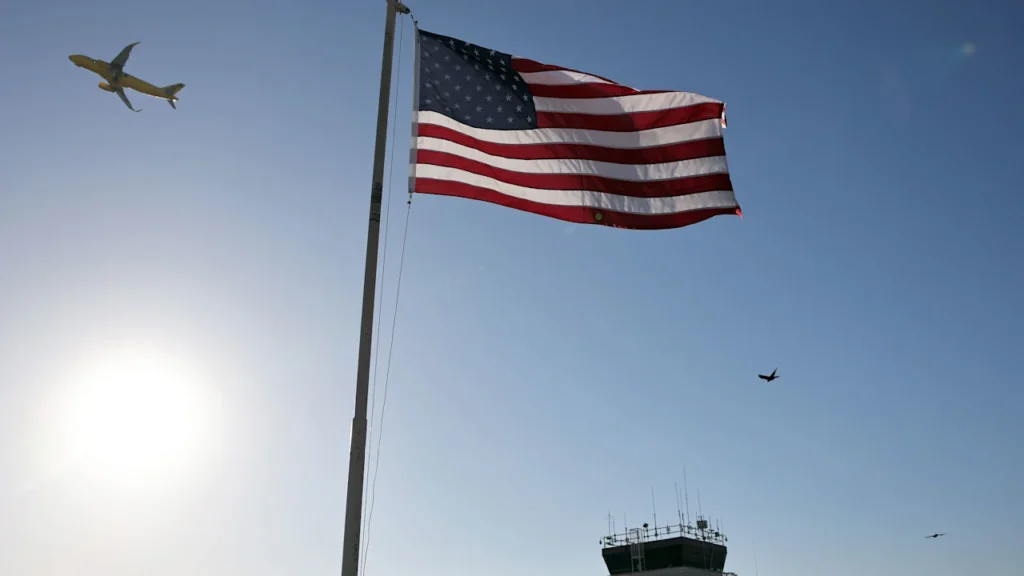
In order to keep US aviation operational through the government shutdown, air traffic controllers have been working without pay. But for the people involved in inspecting our planes to ensure they follow Federal Aviation Administration (FAA) safety standards, the situation is more complicated.
While principal aviation inspectors were told to keep working, assistant-level inspectors and other support staff were sent home and then had to be recalled, several sources tell Fast Company. In some cases, the government is still cycling them in and out of service, adding to the overall disruption. The approach puts even more pressure on the airline industry, which is already struggling to maintain flight schedules amid what’s likely to be the longest-ever government closure.
Sources tell Fast Company that the public should not feel the impact of the disruptions, and that the workers will continue to fulfill their responsibilities. Still, the situation highlights another group of people crucial to a functional commercial-aviation system, working without pay under somewhat chaotic circumstances. The approach to inspector staffing also comes amid growing concerns about the shutdown’s impact on air travel.
Dan Spero, the president of Professional Aviation Safety Specialists, an AFL-CIO linked union that represents these workers, confirmed that aircraft inspectors have now been recalled by the FAA.
The union doesn’t have solid data yet, but says that some offices seem to be operating “business-as-usual,” while others are using their discretionary authority “to furlough and recall employees on a day to day basis,” Spero says. The situation is impacting about 1,200 workers who focus on flight standards and another 60 who work on aircraft certifications, according to the union. Because training isn’t considered essential during a government, newer aircraft safety inspectors are still furloughed.
An official with the Department of Transportation also said that some aircraft inspectors were not automatically exempted during the shutdown and that some were being recalled to inspect planes, before again being furloughed.
Shutdown strains
Last month, a bevy of groups in the aviation space warned leaders in Congress that, amid a shutdown, FAA workers “cannot perform their duties that support aviation safety, aircraft certification, and the integration of new entrants.” It also serves as a reminder that the shutdown isn’t just straining the professionals that monitor the skys—and save us from collisions at airports—but the people who inspect aircraft, too.
An FAA document describes these workers, who carry the title “aviation safety inspectors” as the people who “administer, investigate and enforce safety regulations and standards for the production, operation, maintenance and modification of all aircraft flying today.” These workers can have a wide range of responsibilities involved in ensuring that aircraft are safe, Spero emphasizes.
For instance, aircraft inspectors help ensure cabin and crew safety, and conduct oversight of Boeing vehicles. They are assigned to offices that work with the commercial airlines, as well as delivery fleets operated by FedEx and UPS.
Another aviation-safety professional familiar with the matter confirmed that Transportation officials had resorted to cycling some inspectors on and off duty. During the earlier parts of the shutdown, senior leadership, field office managers, and principal aviation safety inspectors were told to work without pay during the shutdown, they say. “Aviation safety is considered a critical mission, so maintaining oversight in those areas was essential,” the person says.
After a few weeks, senior leadership at the FAA then expanded the number of employees “recalled” to work, including field office supervisors and the inspectors who provide direct assistance to the principal aviation safety inspectors.
“In simpler terms, those assisting inspectors are like ‘associate’ or ‘support’ safety inspectors who help carry out inspections, certifications, and oversight tasks under the guidance of the senior inspector responsible for a particular group of operators or maintenance facilities,” the person said.
Supervisors have the authority to recall administrative professionals “as needed” in order to continue work on inspection and compliance, the person says. But it can be a complex process: “We must formally recall administrative employees to work, track their time, and then officially furlough them again once they’ve completed their assigned days, which can range from one to seven days per week depending on operational needs,” the person explains.
Additional details about the situation weren’t immediately available, including how many workers are cycling between recall and furlough status or which aviation offices require more of these inspectors to return to work. Leaders at the FAA’s Aviation Safety office did not respond to Fast Company’s questions.
In response to questions from Fast Company, the FAA media office sent an automated response: “As Secretary Duffy has said, there have been increased staffing shortages across the system. When that happens, the FAA slows traffic into some airports to ensure safe operations.”
Of course, even before the shutdown, there were growing concerns about the safety of aircraft, particularly those made by Boeing, following a string of serious accidents.


